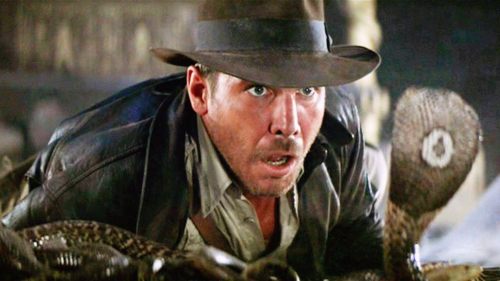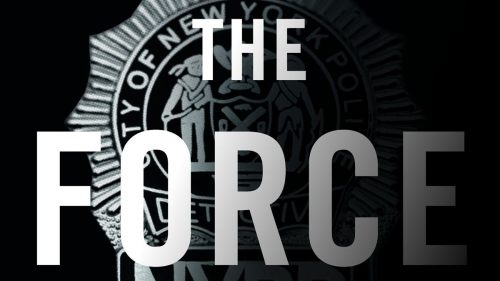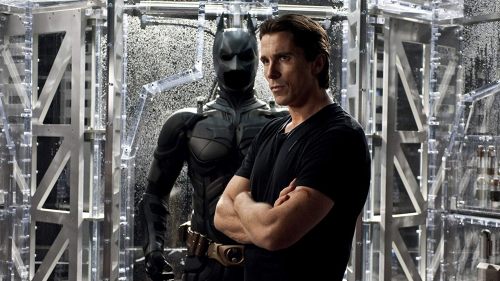FORD V FERRARI: The Joy Of Watching Professional Competence
Ford v Ferrari is almost here. Get your tickets now!
When Christian Bale and Matt Damon bicker and banter in Ford v Ferrari — and, if they’re both on-screen, they’re bickering, bantering and even physically scrapping — they’re usually spouting car and racing jargon. Playing real-life British racing driver Ken Miles and American automotive entrepreneur Carroll Shelby, they’re playing men on a mission: to build a Ford sportscar that will not only rival Ferrari’s full-throttle luxury engines, but can beat the Italian company’s high-octane best at the annual 24 Hours of Le Mans endurance race in France. And so, car terms come with the territory. As the man tasked with steering the Ford GT40 around the French racetrack, as well as test driving it in the planning and building stages, Bale’s lithe, wiry and passionate Miles is the key culprit. He’s also an engineer and a mechanic, as well as an experienced driver, so he knows just what a stellar racecar needs — and he’s not afraid to make that plain.
Directed by James Mangold, the '60s-set Ford v Ferrari has plenty of time for the fruits of Miles and Shelby’s labor. Cars speed around tracks for a significant portion of the movie’s running time, including the GT40 at both the 24 Hours of Daytona and in Le Mans — with the latter naturally providing the film’s thrilling climax. Chronicling how and why Ford came to be in the racing game, Jez Butterworth, John-Henry Butterworth and Jason Keller’s script also dedicates ample focus to the bureaucratic ins and outs. (Company vice president Lee Iacocca (Jon Bernthal) convinces CEO Henry Ford II (Tracy Letts) to try to buy Ferrari, which, when it fails, sparks his desire to beat his rival out of spite.) But, as well-shot and staged as the feature’s racing sequences are, as engaging as both Miles and Shelby prove, and as detailed as behind-the-scenes corporate intrigue gets, Ford v Ferrari’s real fuel is its devotion to watching smart folks getting the job done.
The painstaking steps, the trial-and-error, the risks taken and mistakes made — as Miles, Shelby and their team not only set out to achieve a feat, but also solve a problem, this is the nuts and bolts of Ford v Ferrari. Both men are supremely accomplished at their jobs (even when Damon allows 30 Rock fans to draw more than a few parallels between Shelby and his pilot character in the sitcom), and it’s their hard work and dedication that shines through. The film isn’t an ode to the company they’re working for, or its need to outdo a competitor. Rather, it’s a testament to proficient professionals doing what they’re driven to do. Whether car jargon is your second tongue or it sounds like the Klingon language to your non-gearhead ears, watching Miles and Shelby do what they do best makes for riveting viewing. It’s also the substance that gives weight to the flash and thrills of Ford v Ferrari’s racing scenes; seeing cars zoom at excessive speeds, often just “turning left for four hours” as Miles puts it, isn’t everyone’s cup of tea, but witnessing talented people puzzle their way through a problem should be.
Sometimes showing Miles and Shelby’s grunt work via montage, Ford v Ferrari can be guilty of filtering their efforts through a typical sports-movie template; Trey Parker, Matt Stone and Team America: World Police’s ‘Montage’ would be proud at times. Mostly, though, the film showcases their supreme mastery — especially when Ford executive Leo Beebe (Josh Lucas) starts pushing a company branding and marketing agenda that’s frequently at odds with the basic task of building a capable car. Procedural in style and feel, these segments of the movie hum as heartily as the GT40’s engine. They also place Ford v Ferrari in another category of movies that doesn’t get enough love or attention: celebrations of good ol-fashioned competence.
The sub-genre could use a proper name. Sorry, ‘competent procedurals’ doesn’t cut it. Still, it’s united by something that doesn’t really get enough attention in general, either. Doing a job well isn’t always sexy, particularly when folks routinely get plaudits for doing nothing, or looking attractive, or being born with well-known or wealthy parents — and especially when superheroes with extraordinary skills fly across our screens every couple of months. But, because we can’t all be influencers and caped crusaders, fine people doing fine work is what makes the world go round. Spread across a variety of genres, this notion bubbles beneath a number of films that might seem disparate otherwise, and definitely don’t appear to share much other common ground with Ford v Ferrari at first glance.
Two specific genres come to the fore, the first being space-related movies. There’s a clear underdog element to Hidden Figures, as well as great historical importance; however watching mathematicians and engineers Katherine Johnson (Taraji P. Henson), Dorothy Vaughan (Octavia Spencer) and Mary Jackson (Janelle Monáe) apply their brainpower to the space race makes for exciting viewing because we’re watching their hard work in action. The same can be said for First Man, with its chronicle of the Apollo 11 mission. Indeed, in the documentary realm, stunning archival-based documentary Apollo 11 hinges on the same idea. Clearly, these are merely recent examples; soaring beyond the earth can only be the result of many immensely smart and capable people pooling their talents, and it makes for one of the space genre’s most satisfying strands.
The heavy hitters in this field are perhaps the most obvious candidates, though: crime and journalism procedurals. They’re the type of film that’s engrossing from start to finish because they step audiences through the effort and dedication required to track leads, hunt stories, expose wrong-doing, chase perpetrators and see justice done. Focusing on the investigative journalist team exposing sexual abuse in the Catholic Church, Spotlight deservedly won the Best Picture Oscar for doing just that. Exploring the Watergate scandal, All the President’s Men should’ve. Law and order TV shows are based on the concept, including, yes, Law & Order, but the best example in the crime realm might just reside in David Fincher’s Zodiac. The filmmaker is particularly drawn to meticulous, obsessive professionals — Brad Pitt and Morgan Freeman’s detectives in Seven and Jonathan Groff and Holt McCallany’s FBI agents in Mindhunter, for example — and his devotion gets its best showcase in his masterful 2007 serial-killer drama.
Sports movies in general can also fit the bill, although they often focus on the amassing of skills, rather than applying knowledge — a small but crucial distinction. On the other side of the law-and-order divide, heist films can also count, corralling a group of expert crims to apply their illicit talents towards scoring big at someone else’s expense. And, single-setting thrillers that saddle a protagonist with working their way out of a crisis also share the DNA, as seen in movies such as Buried, Locke and The Guilty. In these cases, the characters aren’t necessarily experts, but they use the talents they have to find a solution.
It’s fitting that Damon, as Shelby, is one half of Ford v Ferrari’s highly competent and dedicated duo; he’s been in this territory before — and recently. In Contagion, he’s one of many dealing with the outbreak of a mysterious virus. He’s certainly not charged with stopping it, but Steven Soderbergh’s film grippingly follows the many players involved in ascertaining the cause, containing the infection and stopping the spread. And, in The Martian, Damon virtually became the poster boy for on-screen brainpower and ingenuity at work. If his stranded botanist and astronaut wasn’t so proficient in his field, Ridley Scott’s crowdpleaser would’ve had a different ending.
If Ford v Ferrari’s Miles and Shelby weren’t as great at what they do, Mangold’s film would’ve turned out differently, too. Actually, it probably wouldn’t even exist.



